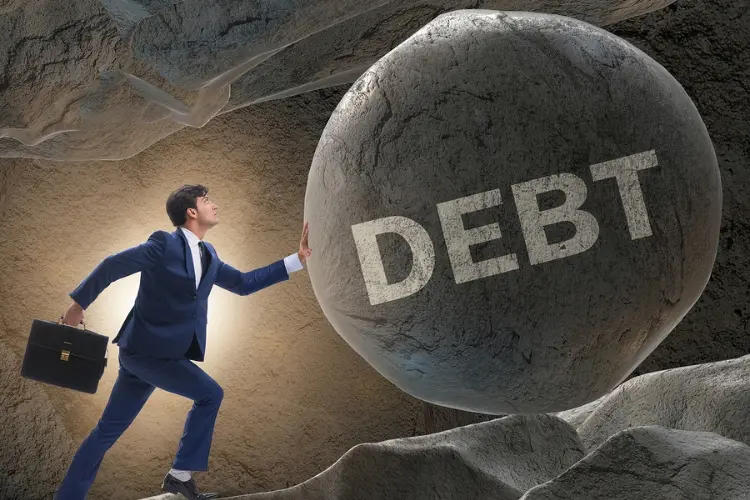by Trevor Rocious
When we talk about credit cards, it's not limited to the convenience attached with them. But, on a larger scale, several responsibilities serve as starters.
Contents
One of these is to have a regular check at credit bureaus. Now, those of you who are not previously familiar with them, we are going to tell. A credit bureau is an agency responsible for receiving your credit information off and on. It directly involves the information about your account. Dealing with your credit payments,an elaborate credit report is prepared by these agencies. A credit report, as we all know, is a very important document in building our credit set-up. As a credit cardholder, we all think of a fine credit report. We often think about the procedure through which a report is made by agencies. The modus-operandi of a credit bureau is quite simple. Your credit card issuers gather you credit information and report it later to the credit bureaus. These credit bureaus are responsible for the formation of an extensive credit report from time to time. This credit report helps you assess your credit as well as your payment details. A comprehensive knowledge of credit detail is necessary because it can help you get an idea about your current credit. With this knowledge, you can later on build up your future credit. Moreover, it also is a necessary aspect in terms of determining your default credit.

Once your credit starts building up, you expect it to be reported to the bureaus as soon as possible. So that you can get a random idea about your credit scores. Since credit scores build up your entire credit reputation. This becomes mandatory for you to have an idea about the reporting details. Many of the new credit payers are keen to know when their respective issuers report their credit details for report formation.
Every credit cardholder at some point has this question in his mind. Talking about the exact time of the report is very difficult. Since we know that every credit card issuer has different working policies. Their rules also vary with respect to their working mechanism. So, having an exact time of report is very difficult. But since it is also necessary for the users to find out their reporting time. There are several hints that may assist you in finding out whether or not your credit details have been reported to the bureaus. As a user, you can seek relief in finding some general perspectives. As we all know that general principles are common throughout. Therefore, you can get an idea about the exact reporting time. I repeat "idea", since there are no clear-cut boundaries in between the time duration and principle of working.
One common belief about the reporting time lies in the " statement day". A statement day, also called closing date is significant and can be seen as the moment of report. Because, the moment, fixed statements are developed, an exact idea about the credit is made too. On a closing date, there are various evaluations made by your credit card issuer. They evaluate your previous reports, your account balance and your payment routines. These are later on reported to the agencies for a detailed analysis. This can take you towards the idea that though statement day can be the exact reporting date. Yet, developing a detailed credit report on the basis of previous and existing credit details can take up to a few more days. It can take up to five to seven days since the new report is updated and details are sent to you.

Although credit details and their length play a significant role in the development of a credit report. Yet, there are some other things too. They can be an extra hurdle in the way of you getting your report fastly. Obviously, this time the hurdle is not an outside factor but is present inside. It is your respective credit agency. As one credit bureau is strikingly different from the other. So, it may be possible that once they receive a particular information. The processing of this information onto another scale may take up a lot of time. The workforce employed within a bureau highly affects the performance too. So, you can expect a delay of another two to three days. However, most of the bureaus sum up their reports in almost seven days. The reports are based on the credit records they receive from a specific issuer. Some bureaus set up an overall report. In this kind of report, previous credit has also a minute significance in designating a new report. This is continuous with each month. Though, many of the agencies at the moment only mention a month's credit record. The credit score is made up of that in particular. The working speed of each agency can distinguish from one another based on this.
Well, the answer to this question is uncertain. If we have to find out the answer to this. We have to diverge ourselves once again towards the bureaus work mode. Many of us have a random idea about the duration of each report. But, on a general note. There is no absolute reality in the "billing cycle's end rule. That mainly focuses on the statement day as the day of action, every once in a month. But, this rule doesn't apply overall. I personally know agencies, who prepare a report on daily and weekly. This report evaluates their daily balance. But, a more detailed and well developed report is found at the month's end. This is the generally accepted convention. This is significant because getting your credit report every once in a month helps you estimate your billing procedure in the upcoming months.
Since credit reports are a very essential factor in solving your finance related issues. You for sure will be needing a credit report at many places. It can be needed for the purpose of renting your long time favourite apartment. You may also be needing the report for applying in the college you want. But just a simple credit report is not what you actually want. But, having a positive credit report is what you need for all this. Many of the credit card companies have their stiff principles. According to these, they are not supposed to report the credit details of their clients to any agency. Though, many report it for keeping it open and easy for you to find out from time to time. Yet, a number of companies keep these details to themselves only. They prepare the credit reports by themselves rather than passing it to any agency out of the three. The top three reliable agencies are Equifax, Experian PLC and TransUnion. Your issuers can report to any of them so that you can get a quick idea. But, not many prefer to. Still, you have to keep a positive credit report or yours because you need to. Your timely payments can do wonders to keep your report positive.

Many times, we notice that despite paying on time. The credit balance still seems elevated. This makes all concerned about the genuinity of the reports by the issuer. This can also contribute in making your credit report negative. In order to avoid this possibility, it is very important to have a clear check. You can avoid the uncertainty by making payments right before the closing date of your statement. It will keep your balance low. Having a low overall balance, keeps your report as well as your credit score balanced. But there are certain factors which impact your credit report. Once the balance is disturbed by your credit utilization. It is going to overcome your report's positive progress.
Credit utilization has very deep affects on your balance. As credit utilization is your overall credit used with the passage of a given time period. There is a fixed limit on credit utilization within a fixed period. Exceeding that limit can bring more down debt on your head. You need to be very careful when it comes to utilization of your credit. Once your utilization rate exceeds. You can think of a negative credit score. So, it's very important to keep your utilization rate low. You can pay down debt on time alongside using limited credit. Though down debt payment is an essential feature for keeping your balance in order. Yet, it does not assure you a positive credit score.
In order to keep a positive credit report, there is a basic 3S principle, you can keep in mind.
You know that a positive credit report is surely going to be helpful. Exceeding your assigned limit can make it hard for you to get a fine credit score. But spending within limits can turn up the game for you. Always try to spend a bit less than your assigned credit limit. Keeping it low can help you a lot.
A regular payment can make it easier for you to lower the balance. Because, it keeps your balance stable throughout.
Always try to pay more than one time a month. Remember that your positive credit is made possible through a low balance. If you are going to pay more than once, your credit remains balanced. As the utilization rate remains lower. The overall credit remains fixed. Making multiple payments can help you in obtaining a positive score.

About Trevor Rocious
Trevor Rocious is a prominent science blogger known for his engaging and informative content in the field of scientific exploration and discovery. With a passion for unraveling the mysteries of the universe, Trevor has captivated a wide audience with his ability to communicate complex scientific concepts in a relatable and accessible manner.
 |
 |
 |
 |
Great Science Topics
Come here for FREE Gifts. We want to share some nice tips and great tricks. First, disable your adblocker for them
Once done, hit anything below
 |
 |
 |
 |